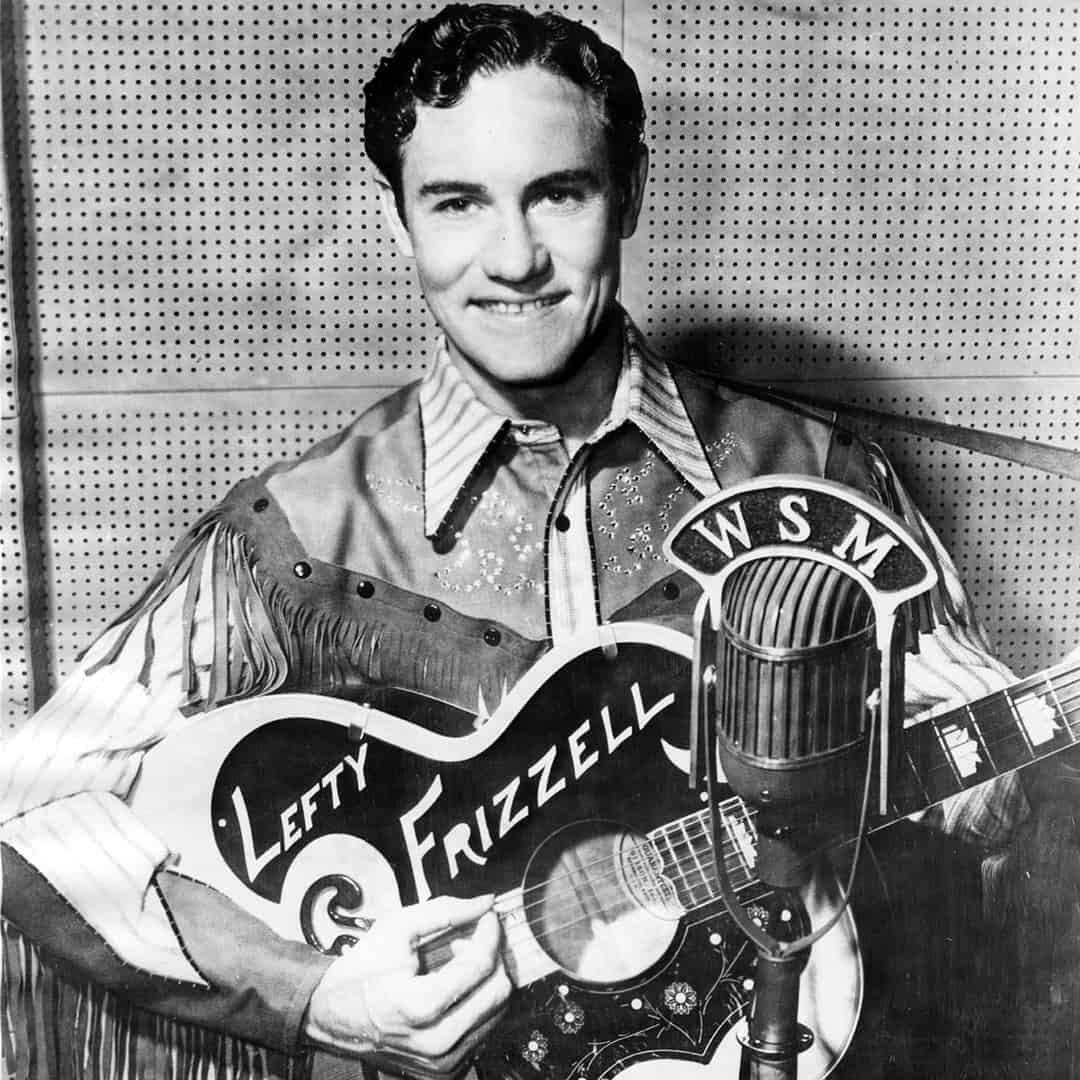
William Orville Frizzell, better known as Lefty Frizzell, was a highly successful country singer who reached the top of the charts several times throughout his career. Growing up with an oil driller as his father, he moved throughout the oil fields in Texas through much of his childhood. Soon he would become entranced by Jimmie Rogers’ Yodeling, and began to emulate it in his own way in the music he sang. He would go on to help define what the honky-tonk genre sounded like.
This yodel adjacent vocal sound would be a staple of most of his career, as time passed, however, the influences of the Nashville ecosystem pressured him to go for a more broadly marketable style. This is audible in the discography he left behind before he died in 1975. Below is a compilation of a small selection that encapsulates this slow change in his musical style.
0:00 – “If You’ve Got the Money, I’ve Got the Time”
“If You’ve Got the Money” was one of the first songs that were officially released featuring Lefty Frizzell, the piece is a perfect example of what we now know as honky-tonk, even including those exact words as lyrics. The song was pitched to Columbia Records with Frizzell’s vocals included only for the sake of the demo, but his performance was so well received that it was included on the final recording, kicking off his musical career.
0:29 – “I Love You a Thousand Ways”
Although the previous song was written and recorded first, “I Love You a Thousand Ways” was distributed on the very same disk on its reverse side. This song was written from jail while Frizzell was imprisoned on charges of statutory rape. Viewing the song within that context, it is easy to see how it could have been intended as an apology to his wife for his actions.
These first two songs are quite similar in style, and were written during the same period in Frizzell’s life. They not only give some insight into the kind of person he likely was, but also nicely demonstrate some of his early influences. As a child, he became attached to the vocals of Jimmie Rogers, and during his early musical career, the inspiration he drew from Roger’s yodeling were plainly audible.
0:58 – “Saginaw Michigan”
“Saginaw Michigan” is a significant departure from the previous two tracks, adopting a vastly different lyrical style and instrumentation, but maintaining his own vocal signature. The song has the typical Nashville sound, with layered backing vocals and a team of session instrumentalists. The song was also not written by Frizzell, and his primary contribution to the work was his voice–he was born in Corsicana, Texas, not Saginaw as the song would suggest.
1:55 – “The Nester”
The most distinctly Texan of this collection, “The Nester” tells a straightforward story of a family choosing to fight over their land rather than running away. The song glorifies concept of defending what’s yours to the bitter end using the heroic tone and the unrealistically successful outcome of the protagonist’s plan.
This song features many of the same production techniques as “Saginaw Michigan”, with plenty of layered instruments and backing vocals. Frizzell’s own vocals are not so similar, having lost much of the Jimmie Rogers feeling in exchange for a more produced style with more flourishes.
2:37 – “Falling”
Using very little remaining Texan influences, “Falling” was released in 1975 and would be Frizzell’s final piece before he died later that year. It serves as a benchmark of all the changes that his sound went through over his career. A shift from very personal honky-tonk songs to this pop record demonstrates the influences imposed on him in Nashville, and a move towards creating music that is intended primarily to sell well.
Brakefield, Jay. “Texas Music: Its Roots, Its Evolution.” Texas Almanac. https://www.texasalmanac.com/articles/texas-music-its-roots-its-evolution.
“Lefty Frizzell.” Country Music Hall of Fame. https://countrymusichalloffame.org/artist/lefty-frizzell/.

